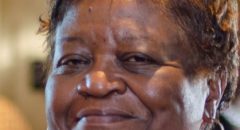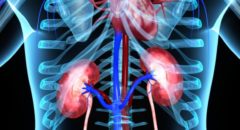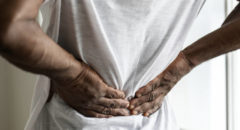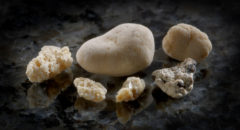 For the more than 80,000 Americans currently on the national waiting list for a kidney transplant, the need for immediate action is real. For the Rev. Dr. Robert Mason, the need is urgent.
For the more than 80,000 Americans currently on the national waiting list for a kidney transplant, the need for immediate action is real. For the Rev. Dr. Robert Mason, the need is urgent.
“It started in my late 50s when I learned that I had high blood pressure,” said the Rev. Dr. Mason, senior pastor at Greater Middle Baptist Church in Memphis, Tenn., of his health journey. “Years later, I was diagnosed with kidney disease after going to the hospital for congestive heart failure. I realized that my kidney health issues were a result of not managing my high blood pressure.”
High blood pressure and diabetes are the two leading risk factors for kidney disease, which can lead to kidney failure. Kidney failure affects African Americans at a much higher rate than other populations, and African Americans currently represent 35 percent of the 80,000 people on the national waiting list for a kidney transplant.
Rev. Mason was diagnosed with kidney disease in 2000, and he has been on dialysis for five years. In recent months, he has faced health challenges with dialysis.
“In my case, I had certain indications that something was wrong, but found out later on that it was a matter of taking my health seriously and that I needed to take better care of myself,” Rev. Mason said. “The fact that I’m in need of a transplant has allowed me to become part of the solution in reaching others.”
The National Kidney Disease Education Program, a program of the National Institutes of Health (NIH), encourages people who have high blood pressure, diabetes, or a family history of kidney failure to get checked for kidney disease. Rev. Mason knows just how important this is.
More than 20 million adults in the U.S. have chronic kidney disease, with more than 400,000 people currently depending on dialysis to treat kidney failure, according to the U.S. Renal Data System. Kidney failure disproportionately affects racial and ethnic minorities.
“To address these disparities, we believe that part of the solution is to ensure people get evaluated for transplantation as soon as they’ve been diagnosed with kidney failure,” said Griffin P. Rodgers, M.D., M.A.C.P., director, National Institute of Diabetes and Digestive and Kidney Diseases. “It’s also important that more African Americans and Hispanics register as organ donors and talk with loved ones about doing the same.”
Rev. Mason takes the time to educate his congregation about organ donation, particularly...
...as it relates to kidney health. He uses his own story as an example. Through Kidney Sundays, NKDEP’s national faith-based outreach initiative, Rev. Mason is partnering with the National Coalition of Pastors’ Spouses, the American Diabetes Association, and Chi Eta Phi Nursing Sorority to educate his congregation about kidney disease and the importance of testing.
On March 25, more than 50 African-American faith organizations in 15 markets nationwide will educate parishioners about the key risk factors associated with kidney disease and the importance of testing. As someone who is in need of an organ transplant, Rev. Mason also is educating his congregation about organ donation.
“It’s so important to educate our community about the sense of urgency we need to have about our health,” Rev. Mason said. “Years ago, we wouldn’t think to have a conversation about organ donation. Now, we see more people have a need for it and realize that the church needs to respond in an active way.”
To learn more about Kidney Sundays and order free materials to help make the connection between diabetes, high blood pressure, and kidney disease, visit http://nkdep.nih.gov/kidneysundays/index.htm. For more information about diabetes and obesity, visit http://niddk.nih.gov.








